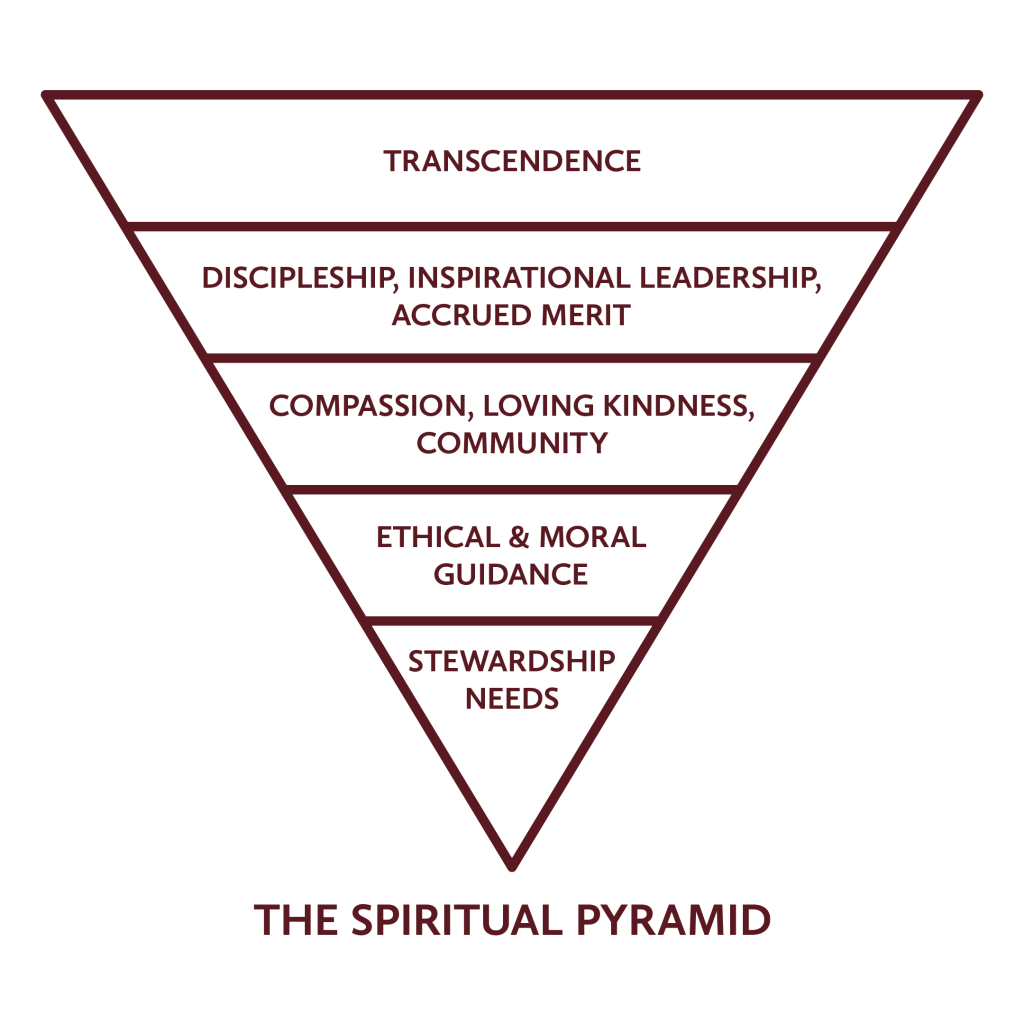Tangible and Intangible Needs
Divine Collaboration is an emerging protocol: parties come to the peacemaking table to express their respective interests and, in addition, to consider Divine interests, the Will of God.
In this peacemaking process, it becomes clear, quite soon, that each party must reflect carefully on their actual needs, or the collaborative negotiation will not bear the fruit they might hope.
In Taming the Wolf: Peace through Faith, I compare Maslow’s hierarchy of human needs with a second pyramid that represents spiritual needs. (See Taming the Wolf: Peace through Faith, Chapter Twelve “Mining for Interests.”) In the peacemaking manual, I encourage parties to seek their true interests beyond the realm of the mundane. In addition to human or practical needs, each of us have spiritual needs.

A Theological Perspective
To better understand the nature of reflection on spiritual needs that takes place in Divine Collaboration, we turn to the theology of Joseph Ratzinger (Pope Benedict XVI).
In this inquiry, we seek to better understand our true nature: are we soul, a spiritual being, or are we solely a biological entity? The answer will color the decisions we make as we negotiate. Ratzinger asks a key question:
“We are inclined today as a matter of course to suppose that only what is palpably present, what is “demonstrable,’ is truly real. But is it really permissible to do this? Should we not ask rather more carefully what ‘the real’ actually is?”1
A Deeper Dive
Most secular mediation, like mediation one might find in the courts, focuses on getting the deal done, with attention to the surface details. There is usually no attempt to dive deeper into the needs of the parties.
“Characteristic of our contemporary scientific attitude, which molds, whether we like it or not, every single individual’s feeling for life and shows us our place in reality, is the limitation to ‘phenomena,’ to what is evident and can be grasped. We have given up seeking the hidden ‘in-itselfness’ of things and sound the nature of being itself;”2
With the Divine Collaboration protocol there is a greater effort to dive deeper into intangible needs—an important aspect of any life. The mediator in Divine Collaboration expands the bandwidth of the assessment of interests:
“There must therefore be both: calculating thought, which is concerned with ‘makability,’ and reflective thought, which is concerned with meaning.”3
“By thinking only of the practicable, of what can be made, he is in danger of forgetting to reflect on himself and on the meaning of his existence.”4
Expanded Reality
When we add the Will of God as a baseline for assessing needs and interests, we begin to see the larger Reality in which the conflict has emerged. We begin to factor in religious beliefs, which play an important role for most people.
“[Belief] is an avowal of the primacy of the invisible as the truly real, which upholds us and enables us to face the visible with calm composure—knowing that we are responsible before the invisible as the true ground of all things.”5
In this new approach, the mediator moves beyond a fixed focus on “the deal” and techniques that can become manipulative.
“In other words, practical knowledge does not inquire what things are like on their own and in themselves, but only whether they will function for us.”6
In this approach, parties are coached to move beyond the data to achieve understanding.
“The tool with which man is equipped to deal with truth of being is not knowledge but understanding: understanding of the meaning to which he has entrusted himself.”7
As we develop this new protocol, we hope to achieve more and more insight into how people create their understanding of the Reality that surrounds them.
